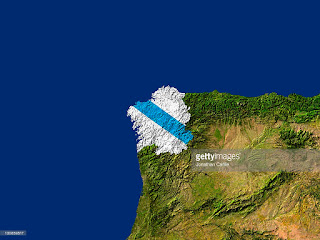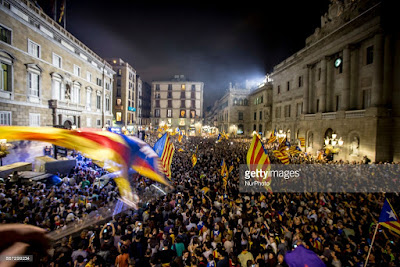Once a Republic

This morning, as I was perusing Facebook, I discovered a nugget of history hithereto unknown to me. Much as Catalunya declared independence in 1934, unhappy that the government in Madrid was becoming too conservative, (It only lasted a few hours and ended with the detention and imprisonment of Lluis Companys, regional president, who later fled to France and was eventually handed to Franco by the collaborators. He was then shot.) Galicia also declared independence in 1931. Our problem was the railroad to Zamora, work on which had just been cancelled, and around twelve thousand men sentenced to unemployment. The Second Republic had recently been proclaimed in April, 1931, with parliamentary elections to follow at the end of June. The new Republic, trying to make do with little money, decided that finishing the railroad line from Zamora to A Coruña was too expensive due to the geography of the area. It cancelled the funding, which it then dedicated to the port of Bilbao, considered...



